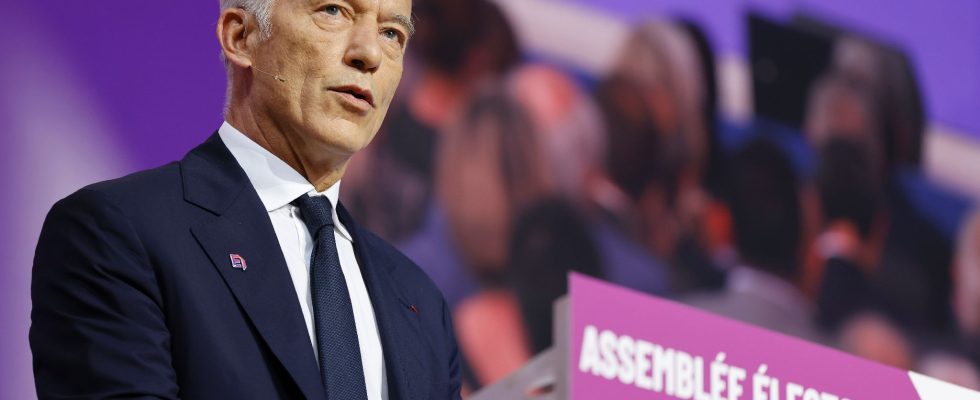Her fate was sealed: she had already been halved and now had to disappear completely. The contribution on the added value of companies (CVAE) worries the Movement of French companies (Medef) and the Confederation of small and medium-sized enterprises (CPME), which denounce a possible spreading over time of the abolition of this production tax, worrying, Tuesday August 22, of the “reliability of the word of the State”.
Created in 2010 to replace the Professional Tax, the CVAE is due by any company (SA, SARL, SAS, etc.) which declares a turnover greater than or equal to 500,000 euros excluding tax during the previous financial year. , and is due to local authorities. Since 2021, its rate has been 0.75% of the added value produced by the company, compared to 1.5% previously.
Difficulties in closing the 2024 budget
With this abolition of the CVAE, the government wanted to encourage companies, and in particular industry, to invest and develop. The strategy could nevertheless change in the face of the difficulties encountered by the government to complete the 2024 budget, which navigates between debt and the urgent need to invest in the climate transition.
According to a newspaper report The echoes, the abolition of the second half would thus finally be spread over four years, BFMTV evokes a one-year report. “I have not had any definitive comments from Bercy and particularly (from the Minister of the Economy) from Bruno Le Maire but, clearly, a spreading of this deletion up to four years is under study”, confirmed to AFP the president of Medef Patrick Martin, one month before the presentation by the government of its draft budget for 2024.
Industry under threat
“It first poses a problem of principle, which is that of the reliability of the word of the State”, explains the president of the first French employers’ organization. He also explains that this tax cut is already “integrated by companies” and partly by industries, whose health and re-development are supposed to be priorities for the French economy. “Of the 4.5 billion euros of CVAE which remain to be eliminated, there are approximately 25% which would benefit the industry”, notes Patrick Martin. This postponement could also slow down the reindustrialization of the country by maintaining “a gap” between France and its neighbors on production taxes.
The president of Medef further notes that companies are being “under pressure, including by the state itself, to invest massively, in particular in decarbonization”, in a context of economic slowdown. Jean-Eudes du Mesnil, secretary general of the CPME, also estimated on BFM Business that “when a commitment is made and announced, it is imperative that it be respected”. For him, President Emmanuel Macron, who had “kept his word against all odds” on production tax cuts since his election, gives in this affair “the feeling that finally, he is changing course and foot”.
“We ask a lot of effort from business leaders” and they “would not understand that we do not ask for effort from the public service”, he added, warning of the risks weighing on investments and growth in the event of postponement of the total abolition of the CVAE.
Back to European standards?
Monday, August 21 on the set of BFM Business, Frédéric Coirier, co-president of the Movement of medium-sized companies (METI) also explained that a delay in the abolition of tax “penalizes companies even before generating results since ‘we come to tax production upstream of the result”. He pleads in favor of a realignment “as soon as possible” of production taxes on other European nations.
The government did not react to this information. In an interview at opinion, Renaissance deputy Jean-René Cazeneuve, general rapporteur for the budget at the National Assembly, wanted to be reassuring for employers, without confirming or denying a spreading of the suppression over four years. “It’s one avenue considered among others and the arbitrations have not been made,” he said, adding: “The promise of the President of the Republic will be kept. The sooner the better”.
The president of Medef also notes that the government wants to use the present and future surpluses of unemployment insurance (Unédic) to finance France Travail, which is to replace Pôle emploi in 2024, and the France Skills agency. For him, these surpluses could “be directed towards a reduction in unemployment insurance contributions” that “from now on companies are the only ones to pay”.
